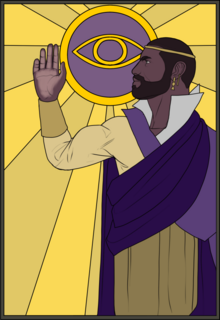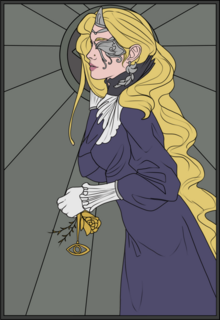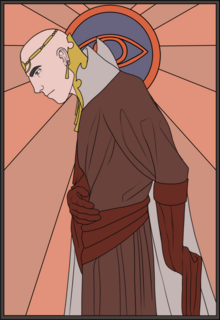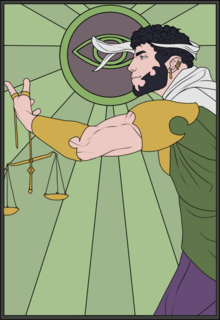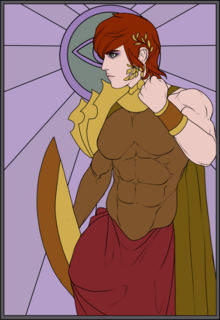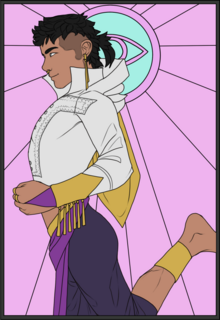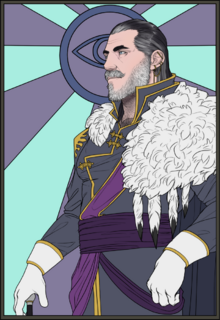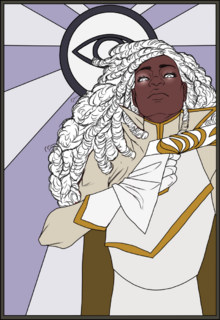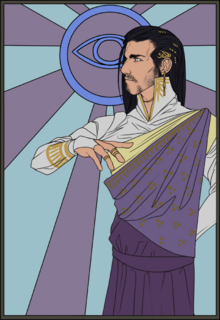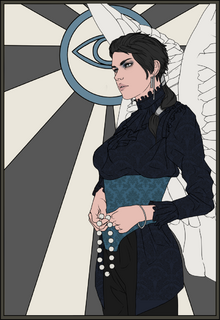More actions
Gods and Goddesses
Unionism has a concept referred to as Trans-Divinity. Trans-Divinity means that whatever their faith understands to be divine, is fluid and constantly changes based on interpretations. By standard, the Everwatcher is always the indisputably most important entity in Unionism. The Living Emperor is also a living Divine Being who should be worshiped as a god, though it is not illegal to acknowledge his sin of creation flaws from time to time. Below the Emperor and the Everwatcher are the God-Emperors and God-Empresses. When an Emperor or Empress dies, they are no longer divine, as the Vessel passes on to the next heir, but some Emperors or Empresses are raised up in the afterlife by the Everwatcher and sent back to Aloria to guide the people, during which process they are made Divine Beings. Finally, on the lower end of the spectrum are the Heroes of Unionism, which are also considered Divine Beings. Heroes are raised to divinity by the Concilly Council even while they are still alive, and continue to be worshiped after death. This all means that Unionism, as time goes by, gains more and more Gods and Goddesses, while other religions are fairly stagnant. Furthermore, it also means that it’s theoretically possible for other religions to merge into Unionism if their Gods and Goddesses can be proven to be real, and prove their divinity or past divinity. Unionists can combine a variety of Divine Entity worship. By default, all Unionists worship the Everwatcher, however, whoever else is worshiped additionally is up to the individual. Some worshipers choose only a single patron deity, while others choose a collection, or leave just a few out. There are no hard rules to Divine Being worship, in general they exist more as examples to live by, instead of a strict pantheon that demands worship.
The Everwatcher
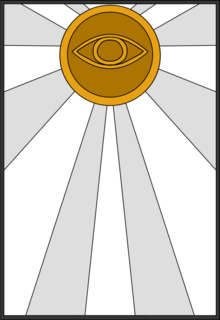 |
|
Theomar, Prophet of All
Ness, Lady of Forgiveness
Juvin, Oracle of Knowledge
Almar, Jester of Justice
Allest, Lord of Domination
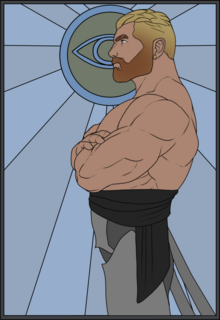 |
|
Elia, Mistress of Victory
Vess, Liberator of Chains
Alexander, Mentor of Compromise
Taal, Mother of Purity
Borond, Lord of Seas
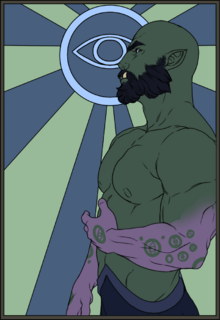 |
Divine Hero Borond is a still-living Divine Being recognized by the Concilly Council with goodhood, following petitions by Eronidas Unionists, as well as first-hand accounts of his assistance with a variety of Regalian engagements. Borond is a so-called integrated Divine Being, meaning he comes from a different religion originally. Indeed, Borond is identical to the Eronidas god Buru from the Asaredu religion, though there are a couple of differences. Borond is the god of the seas, of the military, or storms and rainfall, and of military ingenuity. He is seen as a guide to the Regalian Armadas and fleets, and a patron protector of merchant shipping.
Borond’s shrine shows a depiction of his very Eronidas-looking appearance with the lower body of a shark or dolphin, next to a large gong. The Gong is a reference to the practice of Regalian Armada flagships to have a large gong close to the water, which can be struck in a matter of emergency. It is said that the gong reverberates into the seas, and can be heard by Borond, who has occasionally answered the call and appeared in dire circumstances to save a ship from sinking or being destroyed. In the home, the gong is struck merely ceremonially, while prayers for good winds and fair weather are made. Borond’s role in Unionism compared to Buru in Asaredu leads to some contentious conflict between Eronidas and Unionists (as the Eronidas consider Borond a false interpretation). At the same time however, Borond’s existence in Unionism is an easy way for Eronidas to quickly grow comfortable with Unionism, and a notable minority has converted. Borond is invoked by sailors, usually with a necklace, wooden carving or silver depiction of borond, praying for fair winds after which the necklace is kissed. His infrequent appearances to save Regalian ships from destruction has led to him being recognized as a God of another religion with distinct value for Unionism, thus becoming a Unionist God also. Wave-Born Asaredu worshipers are not acknowledged in Unionism. Unionists, contradicting Asaredu dogma, believe that Borond does reproduce with non-Eronidas, and that if they are Unionist, they are called Borr-folk. Borr-folk are born with webbed toes and feet as well as a prehensile shark-like tail and patches of dark shark skin (all of which are just aesthetic), though these are entirely rejected by the Asaredu faith. |
